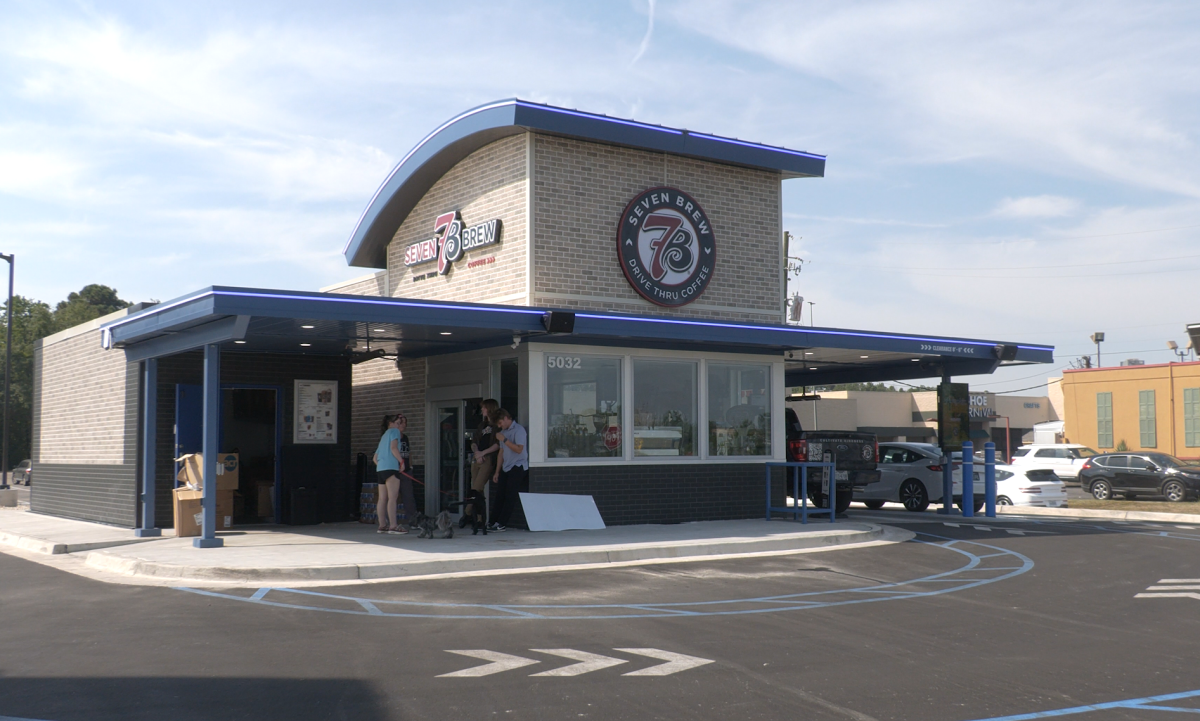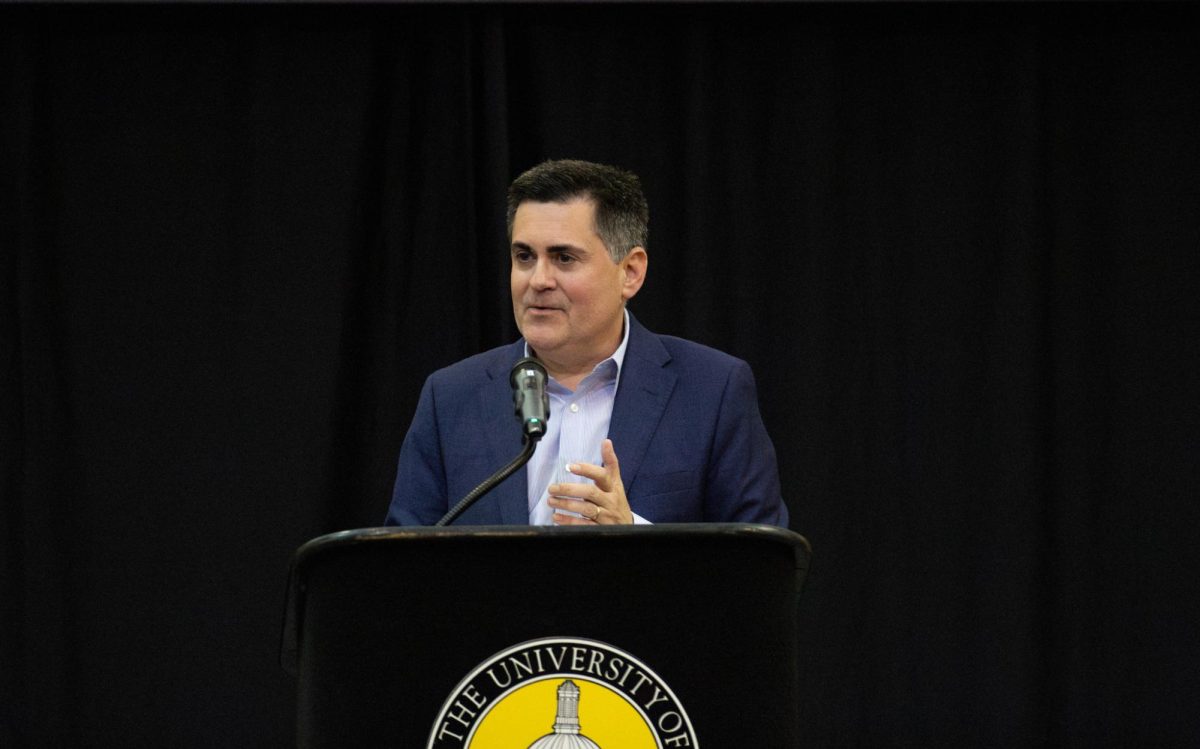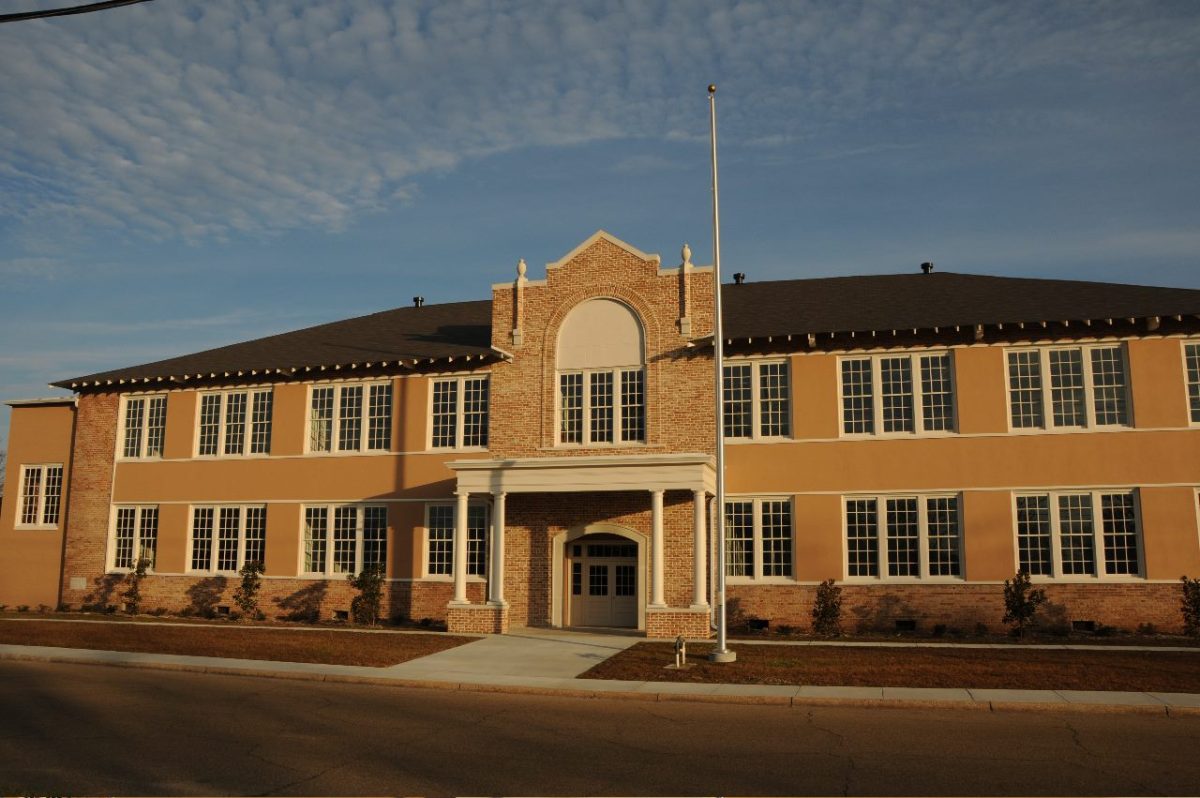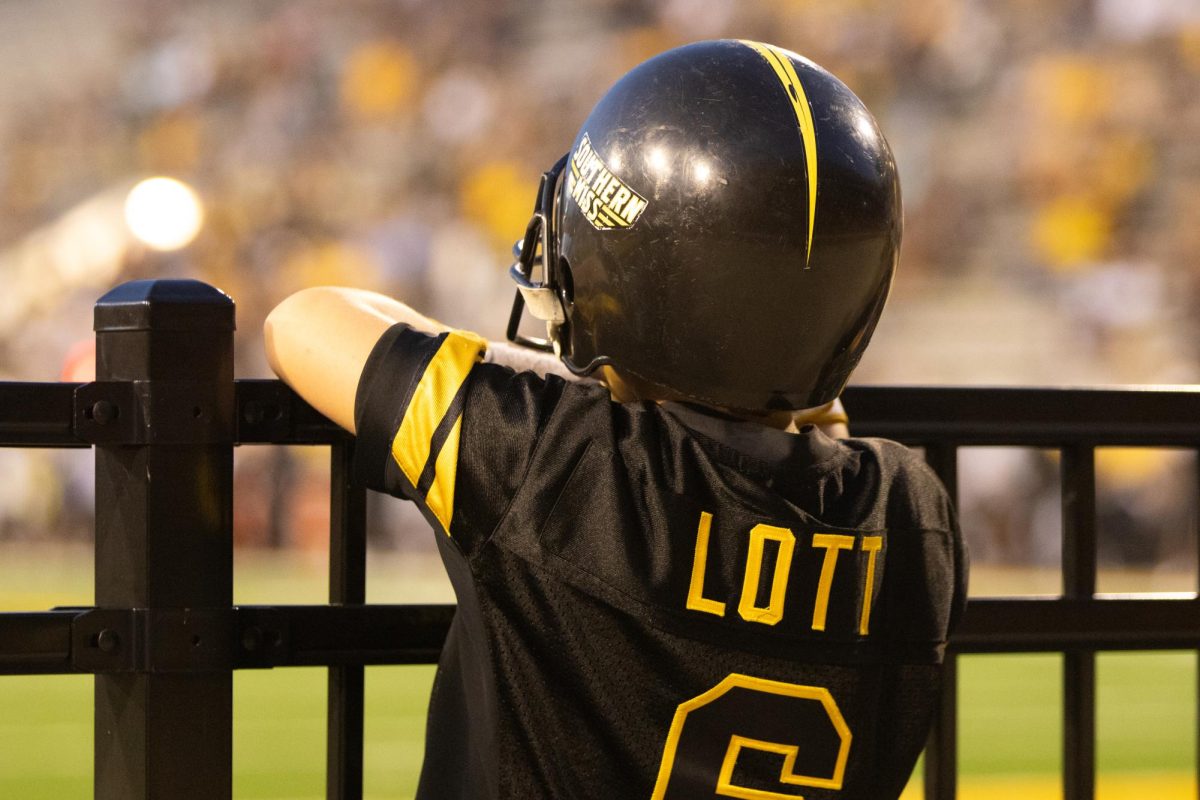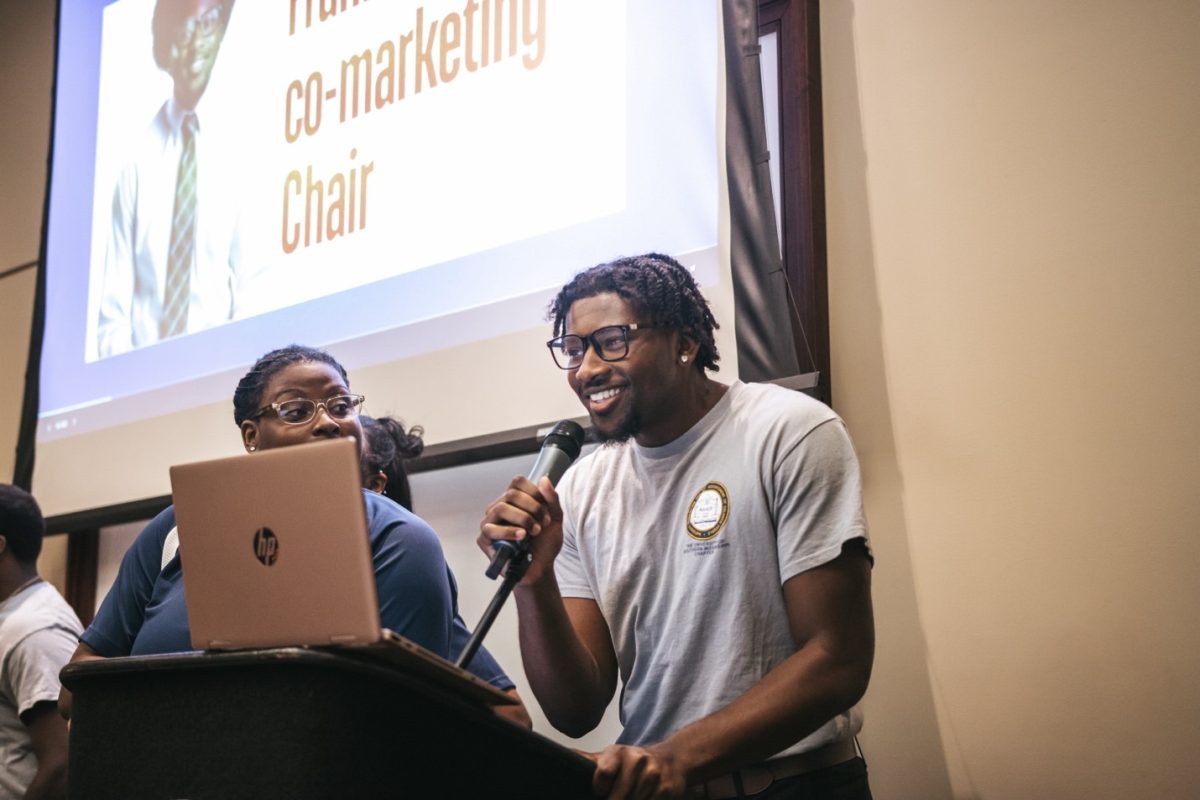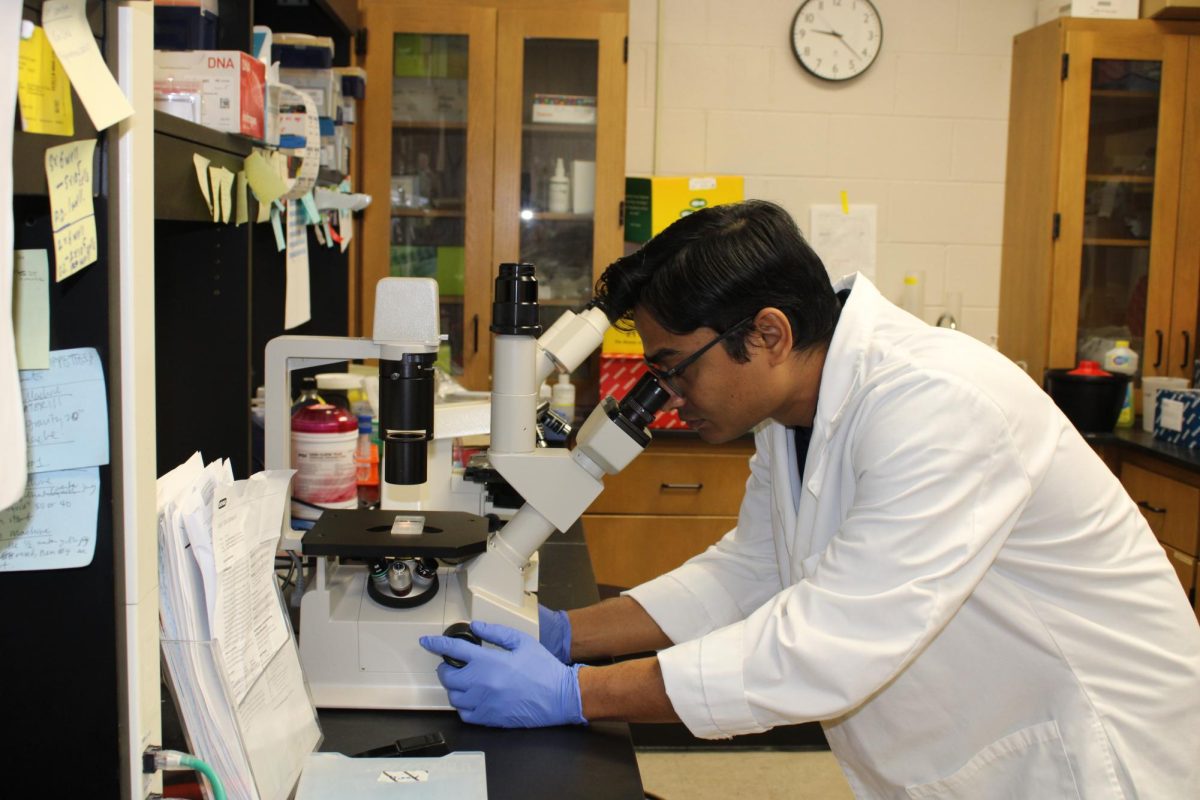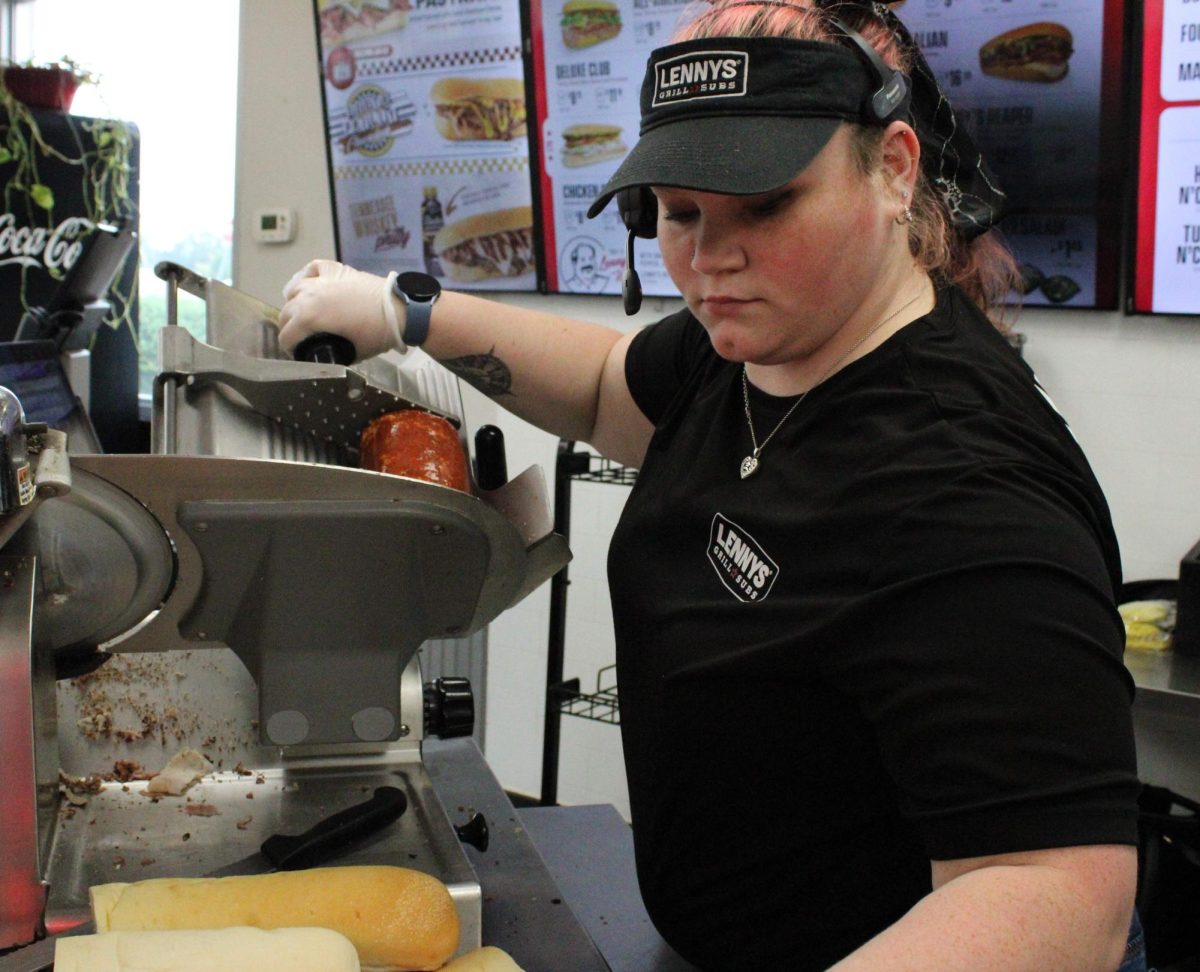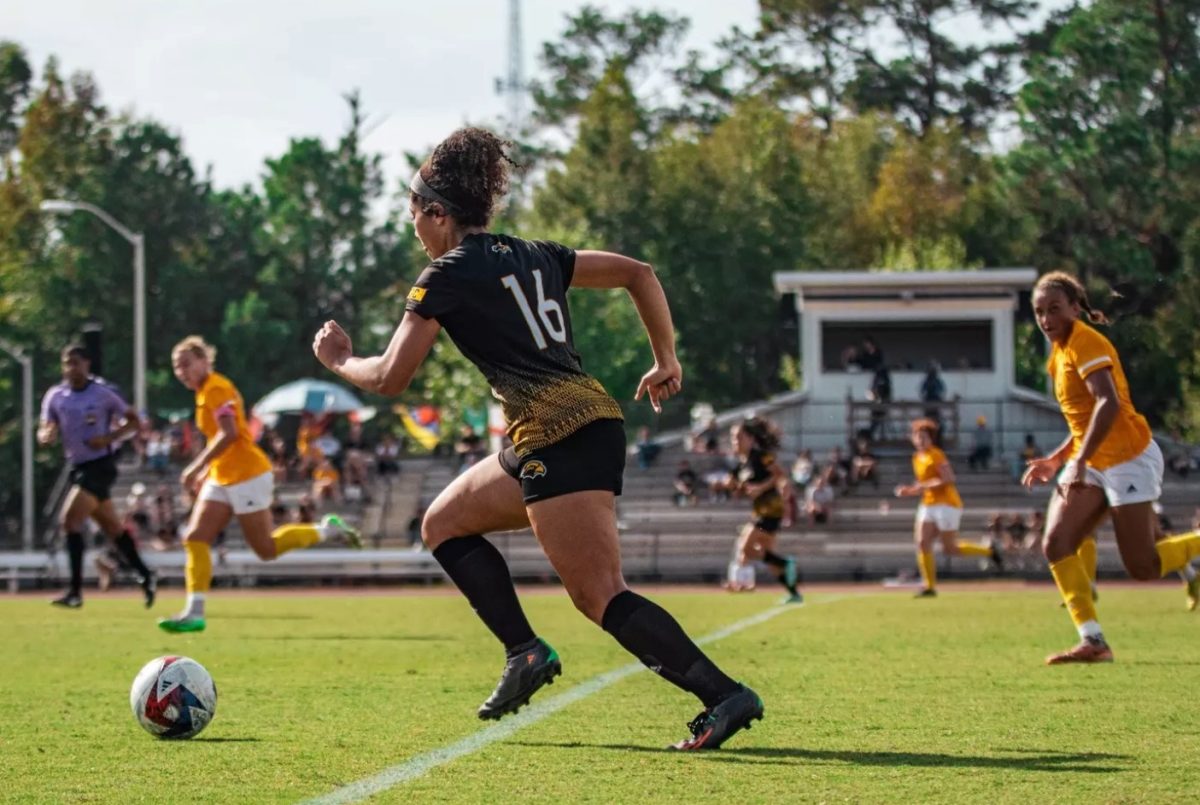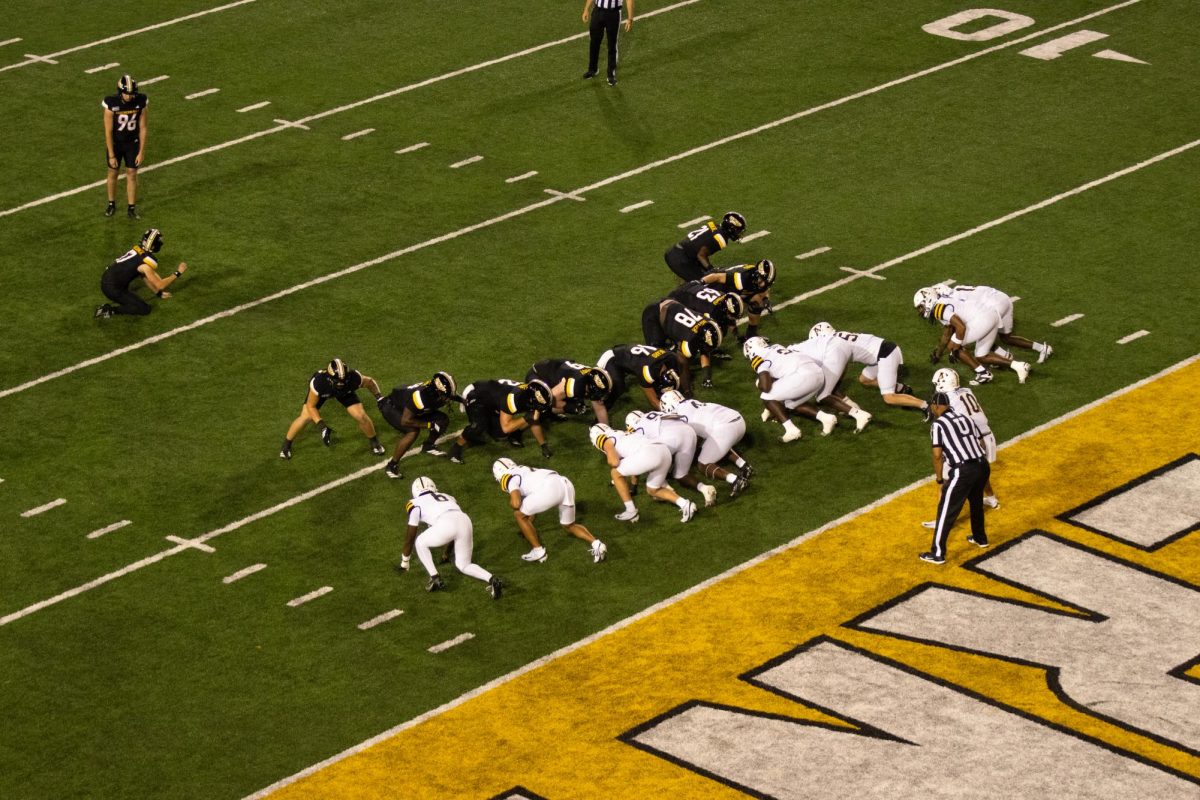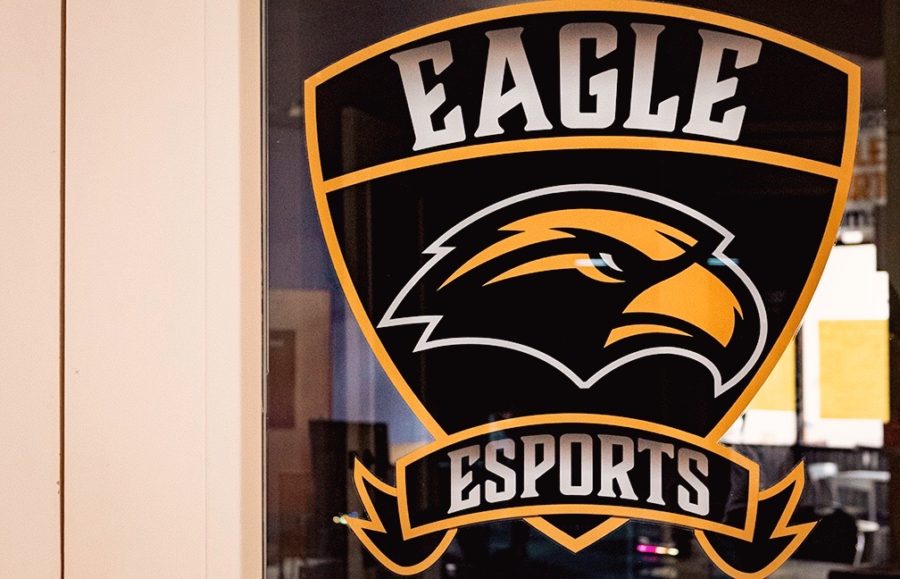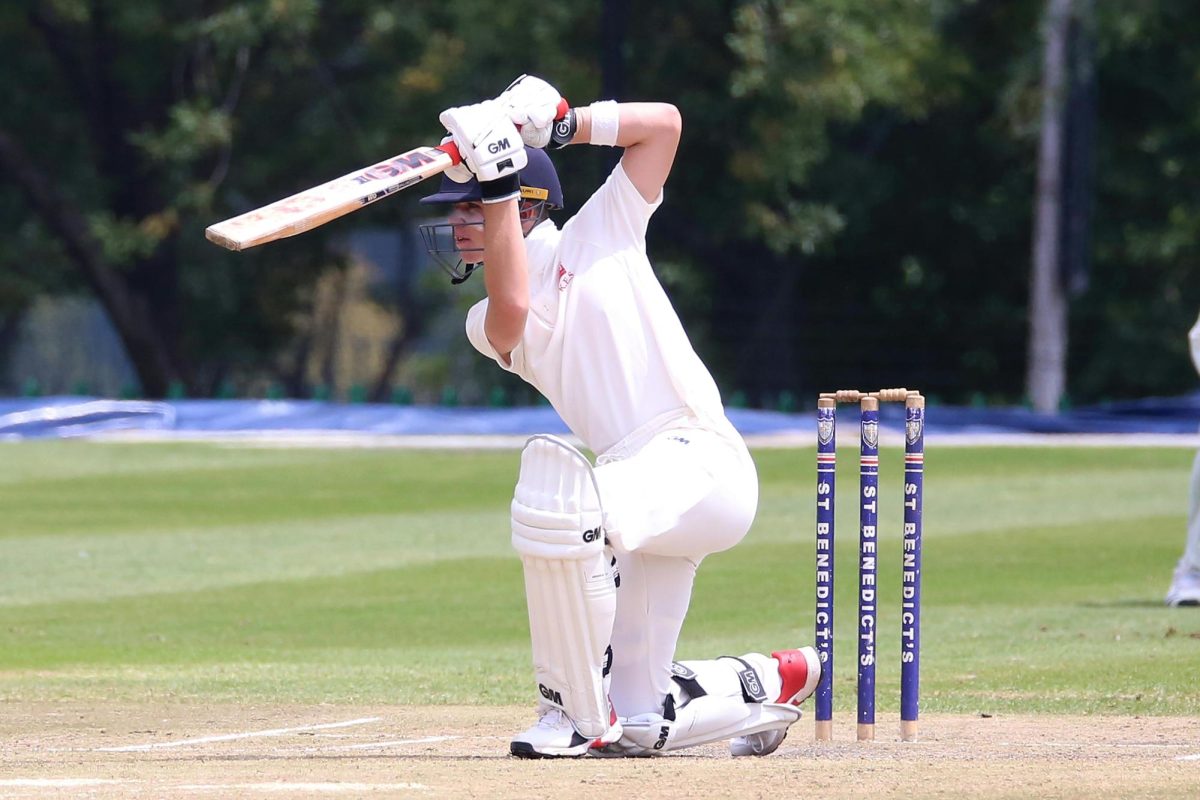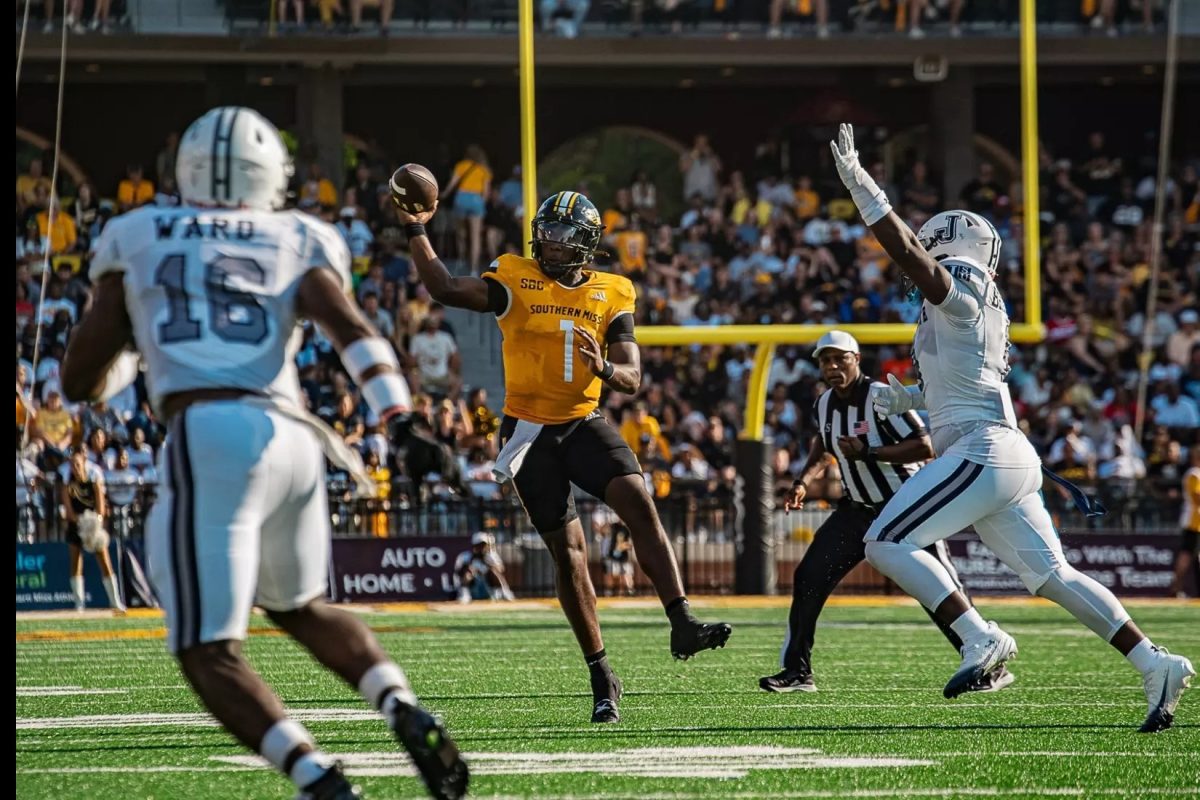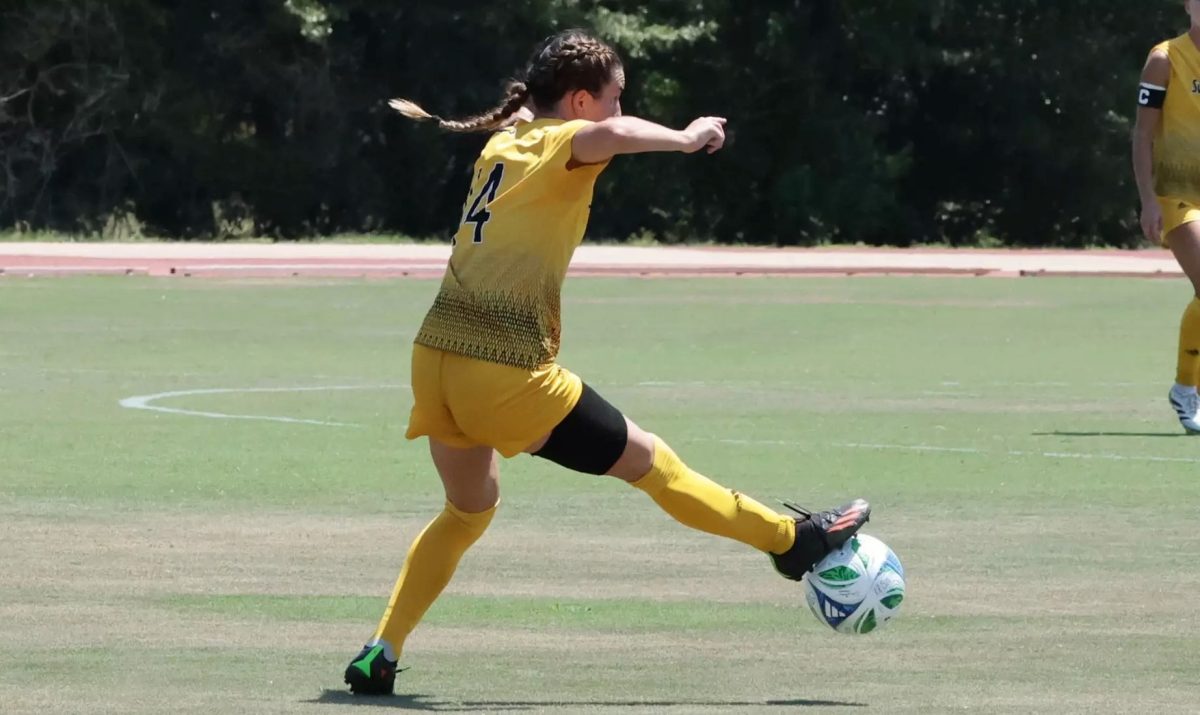Since March, professional and collegiate athletics have faced many operational challenges due to COVID-19. Although there are plenty of struggles sports have had to endure, the pandemic has also presented an opportunity for growth for the emerging realm of Esports.
Before COVID-19 halted in-person operations in the spring, the Esports program at Southern Miss, Eagle Esports, had recently formed. The program had its first formal signing day last February. Now, the program is finishing a new game arena in R.C.’s Lounge and preparing for competition.
Eagle Esports has five competitive teams that each compete in different games and their respective tournaments. There are teams for ‘Rainbow Six’, ‘Overwatch’, ‘Rocket League’, ‘Call of Duty’ and ‘League of Legends’.
‘League of Legends’ (LoL) coach and player Joshua Morgan explains the unique benefits that COVID-19 brought to esports.
“With COVID, everything’s remote and online,” Morgan said. “I do know for a fact that the collegiate scene went from 450 something teams last spring to over 700 this fall. Obviously, [there’s] nothing good about COVID, but one good shining part of it is we now have more participation. In that respect, it has been nice […and] it’s opened doors for esports.”
Morgan also noted that teams who had difficulties with traveling to playoff events in different cities due to funding are now finding greater success in entering tournaments due to the pandemic restricting travel.
However, there have been downsides to Esports due to the pandemic. Junior information technology major Jonathan Haigh is the coach of the program’s ‘Rocket League’ team. He has a completely new team from last year, but has had difficulty building team chemistry and getting to know the other players since they are unable to meet much in-person.
“Everyone gets along pretty well[,] but I would like to have a more personal relationship where I can see them and actually go and get lunch with them or something after a meeting […] and have a more personal relationship instead of just all business and not just messaging me as a coach, but as a person too,” Haigh said.
Despite not being able to meet together in-person to play, Haigh says that the team has been able to easily get online and play together. Team Gold took two wins against Shenandoah University and Oklahoma City University to start its competitive play in the National Association of Collegiate Esports (NACE).
The LoL, ‘Overwatch’ and ‘Rainbow Six’ teams are also starting to play competitive matches this fall.
“Usually, the spring is the only time ‘League of Legends’ competes and it’s all colleges across the states,” Morgan said. “They decided to move it to the fall. It’s the first time, so I have no idea what to expect. I’ve never run this tournament before. It’s going to be new for everybody[,] so I’m really excited about switching things up.”
The LoL team will be playing its competitive matches on Tuesdays and Saturdays. The team also practices and scrimmages against other colleges each week to practice.
Morgan describes how new the scene of collegiate Esports is, especially for LoL.
“A lot of people think it’s a lot more established than it is, but it’s not,” Morgan said. “The first LoL tournament for college was in 2016. The first wave of people to compete hasn’t even graduated yet. This is literally the first generation.”
Assistant Vice President of Student Affairs Dr. Denny Bubrig explains his vision for the growth of the program at Southern Miss.
“We believe that if we get this going and going the right way, it’s going to be a golden opportunity for recruiting for students [and] it’s going to be an opportunity for students to get involved that haven’t been there before,” Bubrig said. “It also has a position as an opportunity for us to be a regional and one of the national leaders in the context of digital engagement through esports.”
Morgan notes that, while Southern Miss formed its program after Mississippi State and Ole Miss did, he believes that the program has grown to rival the other schools’ programs.
“USM is doing an incredible job of staying on the forefront,” Morgan said. “They were the last of the Big Three to get esports. I would argue that their program, what we’ve done with it, is if not surpassed it, we’ve at least caught the other two.”
As the program grows, Bubrig says Eagle Esports are also exploring opportunities for the next generation of Esports players.
“Esports on the high school level is still just getting started in the state, so we’ve been actively talking with the MHSAA about partnerships there,” Bubrig said. “So how can we help develop that next generation of players and coaches has been something that’s not been far from our minds.”
To stay updated on Eagle Esports news, follow @USMesports on social media. You can also follow and watch live streams of events on the club’s Twitch account, southernmsesportsofficial.

